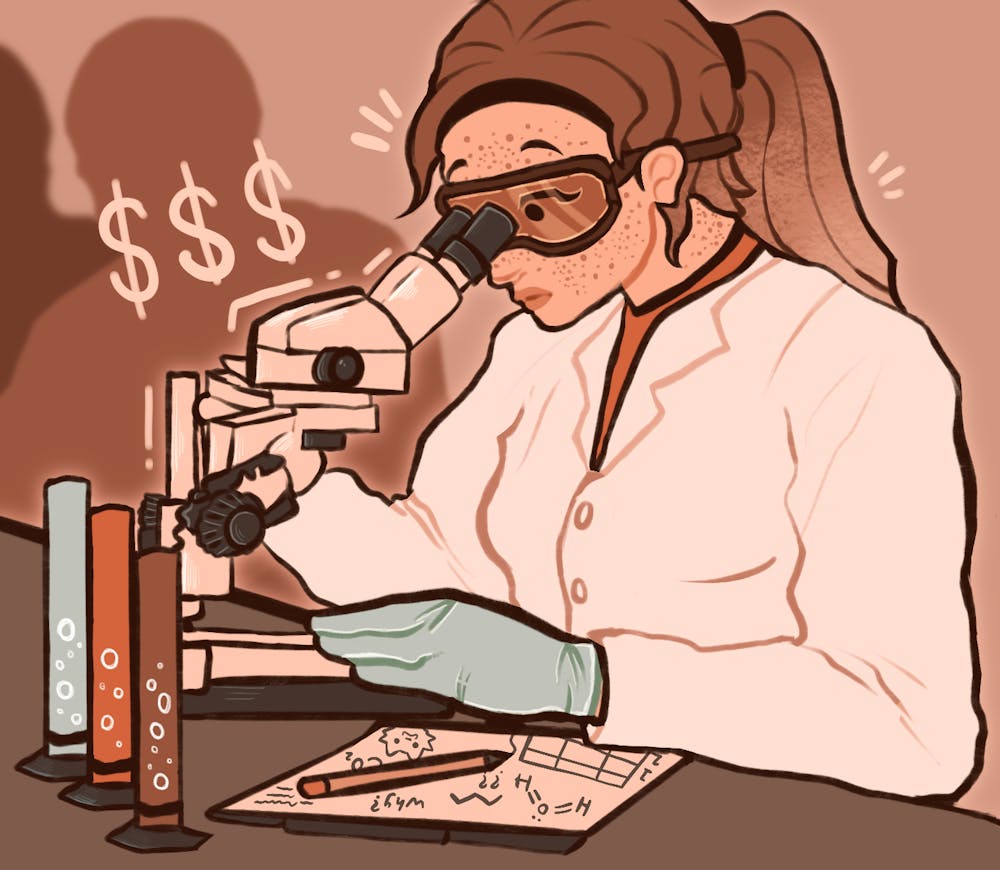Rice testifies for lawsuit against ‘devastating’ federal funding cuts

Rice joined 70 other universities supporting a lawsuit against the National Institutes of Health, which may reduce research funding by billions of dollars. A Feb. 7 NIH memo announced a drastic cut to indirect costs, which covers overhead for research institutions; including funding for lab spaces, water and power bills and paying subcontractors, according to testimony from Provost Amy Dittmar.
The NIH’s guidance would limit an institution’s indirect cost rate to 15%. Rice’s is currently 56%, according to a Feb. 11 campus message from Rice president Reginald DesRoches. Such a funding slash, he wrote, would impact the “essential expenses” that fund Rice’s “successful research on potential treatments for cancer, diabetes, dementia and a host of other serious health care challenges.” In an interview with TIME Magazine, neuroscience professor Richard Huganir called the potential NIH cuts “the apocalypse of American science.”
The federal lawsuit, filed in the Massachusetts district court, alleges that the NIH funding reduction violates Congress’s “express demand” and unlawfully undermines federal separation of powers. Plaintiffs allege the new policy would be a “disaster to science” with “immediate and devastating effects,” and was issued in “flagrant disregard of the reliance interests [the NIH] aims to protect.”
The lawsuit is led by the Association of American Universities, the American Council on Education and the Association of Public and Land-grant Universities, with a dozen other research universities — including the Massachusetts Institute of Technology, the University of Pennsylvania and Cornell University — signing on as co-plaintiffs. Rice did not join the lawsuit as a plaintiff, but has submitted Dittmar’s statement as sworn testimony. A hearing will occur Feb. 21, after a federal judge in Boston temporarily halted the NIH’s order.
“Rice is not a plaintiff in in its own right, but as an AAU member, it will have its interests represented by the AAU, and will be entitled to any remedies the AAU obtains in the lawsuit,” Omar Syed, Rice’s chief counsel, wrote in an email to the Thresher.
According to Dittmar’s testimony, Rice received $43.1 million in total NIH funding, with $9.3 million allocated for indirect costs. This year, Rice is expected to receive$ 20.5 million in NIH funding, with $11.6 million — over 50% — allocated for indirect costs.
“Rice elected to support the lawsuit to ensure that its research community would continue to receive the support legally due to it by the federal government. Rice did so by providing a lengthy, detailed, and sworn declaration from Provost Amy Dittmar,” Syed wrote in an email to the Thresher. “That declaration helps the court more fully understand the adverse consequences that medical and health research can suffer when negotiated contract payments are withheld from researchers without notice.”
In her testimony, Dittmar described the proposed cut as having both immediate impacts, and longer term impacts that are “cumulative and cascading.”
Threatened medical research initiatives include technologies for early cancer detection, cell therapy to treat acute respiratory distress syndrome and a genome-editing strategy to treat sickle cell disease, Dittmar said.
Beyond halting existing research, Dittmar said lack of funding could cause safety concerns.
“Reductions may cause safety issues from lack of staff and security, threats to research security and national security because of increased data access and theft by malicious actors, and the inability to restart research studies even if funding were restored,” Dittmar said.
Beyond Rice, Dittmar also said that cutting current research could threaten the country.
“Slowdowns or halts in research by Rice and other American universities will allow competitor nations that are maintaining their investments in research to surpass the United States on this front, threatening both our Nation’s national security and its economic dominance,” Dittmar wrote in her testimony.
Currently, the Office of Research Development advises researchers to continue working on their projects unless notified by the Office of Sponsored Research, according to their website.
However, the office also advises researchers to “closely monitor obligated budget balances to avoid deficits while awaiting future obligations,” and that “anticipated funding is subject to availability and should not be considered guaranteed.”
More from The Rice Thresher

O’Rourke rallies students in Academic Quad
Former U.S. Rep. Beto O’Rourke of El Paso, Texas spoke in front of the Sallyport to a sea of sunglasses and “end gun violence” signs April 17. The rally, organized by Rice Young Democrats, took place in the academic quad from noon to 2 p.m.

Five international visas revoked at Rice
Federal authorities have revoked visas for five international affiliates at Rice — three current students and two recent graduates, President Reginald DesRoches announced in an April 11 message to campus. The revocations are “not related to social activism or protests,” a university spokesperson told the Thresher.

Modified Beer Bike races rescheduled to April 18
Beer Bike races have been rescheduled for April 18 at 5-8 p.m. The makeup event was announced in an email to Beer Bike captains, coordinators and stakeholders, from the campuswide coordinators and the Bike Captains Planning Committee.

Please note All comments are eligible for publication by The Rice Thresher.